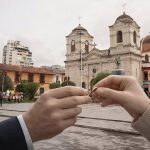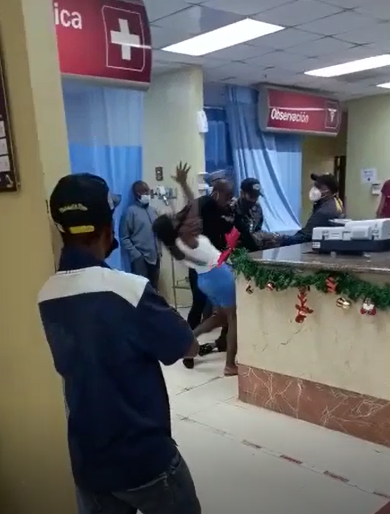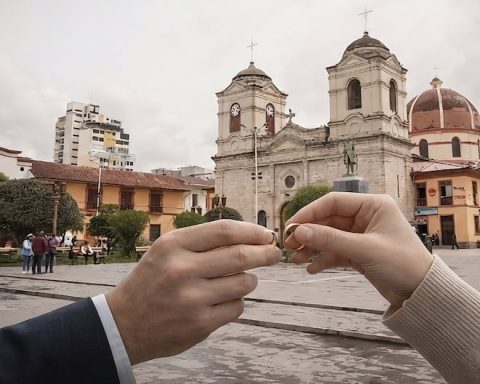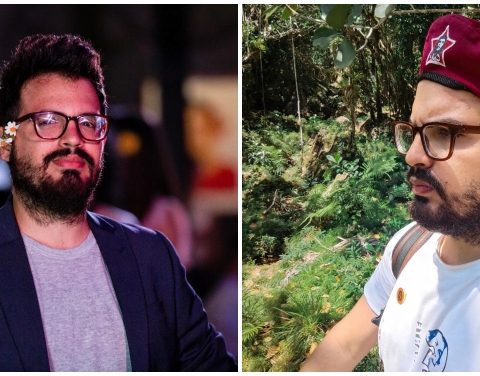When there was already a date for the inauguration of the Cannabis Museum and the guests were confirmed, expectations fell on what news it would bring in terms of the current regulation. “Everyone is waiting for your announcements, eh?”, They said as a pressure to Daniel Radío, secretary general of the National Secretariat of Drugs and president of the Institute for the Regulation and Control of Cannabis (Ircca), once he confirmed that he would be at the reopening.
There was no announcement. The possibility of enabling the sale of cannabis also to those who came to Uruguay as tourists had already been ruled out by the government for this season, but the idea that “it is to sign a decree” and that, “if there is a will, it leaves” it continued to sound among the various actors and activists in the sector, who anxiously await changes in the regulation.
Consumers who are within the system established by the State – through purchases in pharmacies, by association with cannabis clubs or by self-cultivation – agree that there are some aspects of the regulation that should be modified: why only pharmacies can sell marijuana? Why such a low percentage of THC –which generates the psychoactive effect– in the two varieties that you offer? Why isn’t less THC allowed for those who want to smoke without getting ‘hit’?
Radio coincides with the questions and from the Ircca three lines of work were marked to update the regulations: the universalization of users – which can be offered to anyone, without the need to distinguish between Uruguayan residents and foreigners -, the diversification of points of sale –And that pharmacies are no longer the only ones offering marijuana– and the increase in the number of cannabis varieties that are sold to the public –with a diversity of THC levels for different tastes–. This administration enabled a new variety to be offered in pharmacies and the idea is that it has more THC than are currently available and around 10%, although it is unknown what the level of concentration will be because it is still in the process of being developed. production and analysis. As a parameter, cannabis clubs or home growers grow plants with more than 20% THC.
The idyll that has been hanging over the sector for some time is that, at a certain moment, marijuana resembles quality wine: that its “wineries” can be visited, that tastings are organized, that there are cultural events that surround it, that they can compete the different varieties.
But the law, which in 2013 put the country on the avant-garde podium for regulating the marijuana market, eight years later is the one that hinders the changes that are intended. The weight of being a pioneer country led the State to implement a series of regulations and controls to avoid failures that make the norms work today like a game of dominoes: the movement of a tile can make the rest stagger.
One of those movements is the one that has to do with the sale of cannabis to non-resident foreigners. If the authorization were only to sign a decree, as in theory it is, how are the points of sale resolved later? By law, today it can only be sold in pharmacies to those who are registered, so registration should also be implemented for newcomers. Then go to the capture of a pharmacy that offers psychoactive cannabis. Where? There are only 24 authorized to sell, and several departments –among them Rocha and Colonia, where foreigners visit the most– have none.
And why don’t pharmacies want to sell marijuana? Because that implies that banks close their accounts due to international standards for the prevention of money laundering linked to drug trafficking.
One of the options that were handled to universalize the sale, without going through pharmacies, was to place cannabis dispensers. But that triggered other doubts: under what format? Like snack machines? How to comply with the registration and make sure that the person in front of the machine is the one who is authorized to buy? There is no such reference in another part of the world linked to cannabis.
What if cannabis clubs could also sell to tourists? These clubs – there are more than 200 qualified clubs that the regulation allows up to 45 members – are registered as non-profit associations. They are not companies, they cannot sell.
Another problem that arises is that of the licenses already paid for by the companies that produce marijuana and the contracts that were signed. There are four companies that have won tenders and they are the only ones that can produce and sell recreational cannabis: Symbiosis –which has been around since the law was passed–, Biopharmaceutical Research Company, Jabelor and Legiral.
These companies have to comply with the requirements and controls established by the State: what seed they sell, to whom and at what price.
What happens if, in the middle of the validity of these contracts, the rules of the game change and the market opens? In the government they fear that a false step and a decree in a hurry will end up exposing the State to millionaire lawsuits on the part of the companies that are created damaged.
Above all, because it has become a not so attractive market when licenses, requirements and controls are on one side of the balance and the return on investment on the other. ICC, the company that started producing marijuana together with Symbiosis, did not renew its license this year to produce psychoactive cannabis, although it did keep the production of medical cannabis. Along the same lines, the cannabis holding company Terraflos decided not to invest in Uruguay due to delays in opening sales to tourists.
While Uruguay stayed with the first step it took in 2013, other countries such as Mexico and Canada advanced in policies to decriminalize consumption and regulate sales.
The twists and turns in the regulation of the cannabis market for recreational use have led to the fact that, despite pressure from activists, consumers and entrepreneurs in the field, the government has still taken timid steps with respect to the lines of work that were set for this period.
The legislative route
Outside of the possible decrees that can be modified at the government level, an initiative to update the law also emerged in the Legislative Branch. A draft of the project was presented by the Frente Amplio deputies Sebastián Sabini, Alejandro Sánchez and Eduardo Atonini, as reported by La Diaria days ago. In dialogue with El Observador, Sabini said that the objective is to update “the very rigid scheme” that is in force and enable access to tourists, increase and diversify the points of sale, and increase the number of partners – and therefore also plants – that cannabis clubs can have.
The plan, according to Sabini, is for the bill to enter before the next legislature begins.
So far Cabildo Abierto has been the only party that has marked a position against the sale of marijuana regulated by the State. “Marijuana affects the neurons, the brain, it is a scientific fact and it must be said with all the letters. In our government proposal we had talked about ending the authorization of recreational marijuana, about combating marijuana in young people in a more effective way. Undoubtedly, we do not have the necessary majority to raise an issue of this nature, to achieve that the legalization of recreational marijuana is repealed, but that does not change our position, “said party leader and senator Guido Manini Ríos in his radio hearing Oriental in early November.
Cannabis sales broke records in 2021
The low level of THC in cannabis that is offered in pharmacies did not prevent consumers, more and more, from buying it. In 2021, a record of marijuana sales was broken at these points of sale: with the latest data available as of November, more than 1,600 kilos were purchased in the year, which translated into a turnover of around US $ 2.5 million.
These figures beat those of 2017, the first year of sale of marijuana in pharmacies in which there was an uncover effect, with lines of several meters to test the product just released on the market and a stock that was running out quickly. Once the novelty was over, the following year sales fell, and in 2018 and 2019 they picked up again.


















